Trans-Pacific Legacies
VIEW EVENT DETAILSA Program in Memory of Jeffery A. Bader and David Dollar
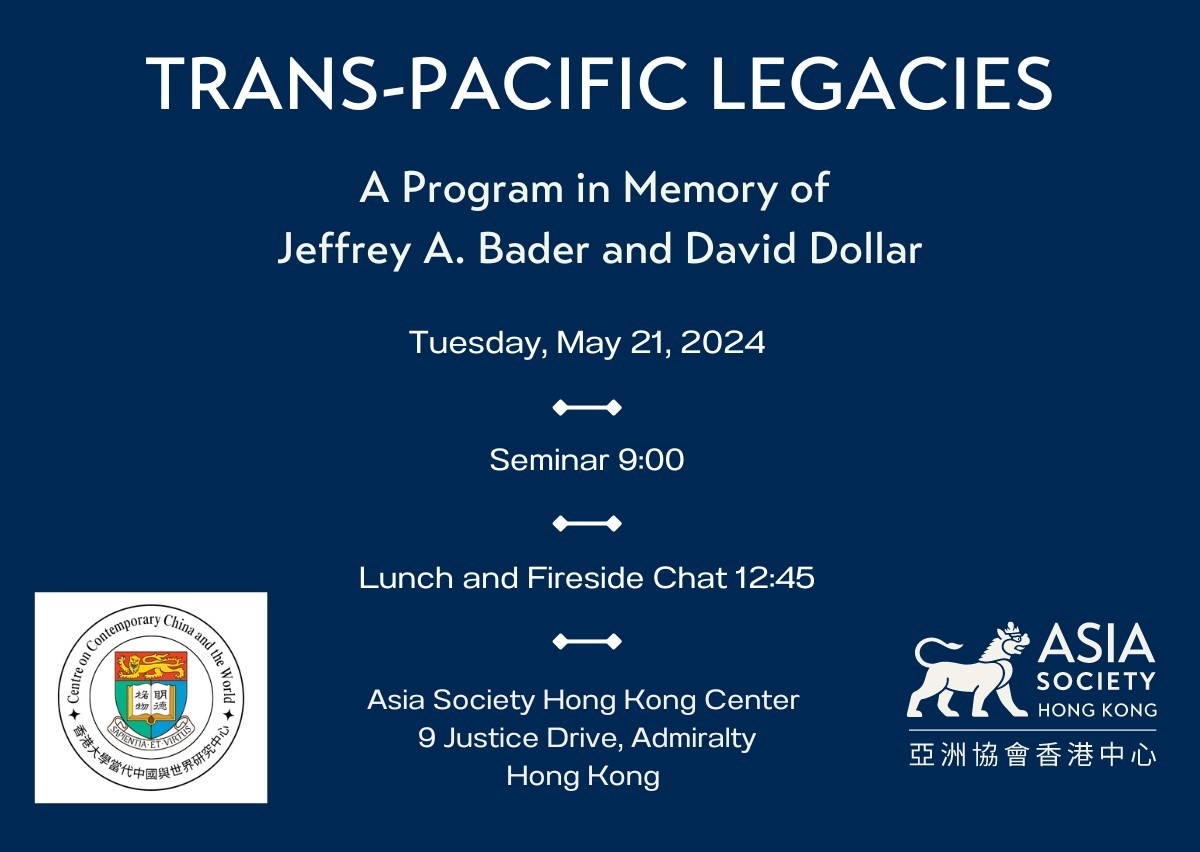
RUNDOWN:
08:30 Registration
09:00 Opening Remarks
09:15 Keynote Session: The Search for Converging Interests
10:15 First Panel Discussion: The International Economic System
11:25 Second Panel Discussion: 21st Century Diplomacy
12:30 Break; End of program for seminar-only attendees
12:45 Lunch
13:15 Fireside Chat
14:00 End
The morning seminar is free of charge and open to the public. Registration required.
Lunch and Fireside Chat Tickets:
Speakers and panelists: Complimentary
ASHK Members: HKD 580
Non-Members: HKD 680
The Centre on Contemporary China and the World (CCCW) at the University of Hong Kong and Asia Society Hong Kong Center (ASHK) are proud to present Trans-Pacific Legacies: a program in memory of Dr. Jeffrey A. Bader and Dr. David Dollar, two individuals who dedicated their careers to improving and advancing political and economic relations between China and the United States, making outstanding contributions to the field of China studies and in the lives of many friends and colleagues along the way.
Following opening remarks, a keynote panel will discuss the importance of people to people exchanges, constructive engagement, and finding pathways to overcome obstructions in the Sino-US relationship.
The second panel discussion will concentrate on Dr. Dollar’s area of expertise - the international economic system - and feature a discussion among elite experts and former colleagues of Dr. Dollar’s who have spent their careers focused on China’s economy and US-China economic relations.
The third panel will turn to Dr. Bader’s career focus with a discussion on 21st century diplomacy featuring his former colleagues from Washington and former counterparts from China on the current state of US-China relations and how to manage competition and contention between the two great powers.
The seminar will be followed by a ticketed lunch featuring a fireside chat discussion focused on how individuals and organizations can help to strengthen and improve Sino-US relations.
Speakers and Panelists
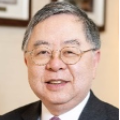
Ronnie C. CHAN is the Honorary Chair of Hang Lung Group Limited and its subsidiary Hang Lung Properties Limited, both publicly listed in Hong Kong. Hang Lung expanded into mainland China in 1992, developing, owning and managing world-class commercial complexes in key tier one and tier two cities. In 1986, Mr. Chan co-founded Morningside, a diversified investment group engaged in private equity and venture capital investments in North America, Asia, and Europe. He founded and chairs the China Heritage Fund, and is a cofounding Director of The Forbidden City Cultural Heritage Conservation Foundation in Beijing. Mr. Chan is a Fellow of the American Academy of Arts and Sciences, Chair Emeritus of the Asia Society and Chairman of its Hong Kong Center, and Co-Founder and Chairman of the Centre for Asian Philanthropy and Society. He serves or has served on the governing or advisory bodies of several think tanks and universities, including: Peterson Institute for International Economics, World Economic Forum, East-West Center, Pacific Council on International Policy, Eisenhower Fellowships, The Maureen and Mike Mansfield Foundation, University of Southern California, Indian School of Business, The Hong Kong University of Science and Technology, Yale University, Tsinghua University, and Fudan University.

Bert HOFMAN is an Honorary Senior Fellow on Chinese Economy at the Asia Society Policy Institute's Center for China Analysis. He is a Professor at the East Asian Institute at the National University Singapore (NUS). Mr. Hofman is also a Senior Fellow at MERICS in Germany. Before joining NUS, he worked with the World Bank for 27 years, 22 of which in Asia, and 12 of which on China. He was the World Bank Country Director for China 2014-2019, the China country economist 2004-2008, and the Chief Economist for the East Asia and Pacific region 2011-2014. Mr. Hofman also worked at the Kiel Institute of World Economics, the OECD, and NMB Bank (Now ING). He studied economics in Rotterdam and Kiel.

HUANG Yiping is PKU Boya Distinguished Professor, Dean of the National School of Development, and Director of the Institute of Digital Finance, Peking University. Currently, he is also Deputy Secretary-General of the China Society of Finance and Banking, Chairman of the Special Committee on Fintech Development and Research of the National Internet Finance Association of China, Chairman of the Academic Committee of the China Finance 40 Forum, a member of the Chinese Economists 50 Forum, Editor of China Economic Journal, an Associate Editor of Asian Economic Policy Review, an independent director of the Ant Group and the China Life Insurance. His key research interests are macro economy and financial policy.
Previously, he served as a member of the Monetary Policy Committee at the People’s Bank of China between 2015 and 2018. He was also a policy analyst at the Research Center for Rural Development of the State Council, Senior Lecturer at the Australian National University, General Mills International Visiting Professor of Economics and Finance at the Columbia Business School, Managing Director and Chief Asia Economist for Citigroup, Managing Director and Chief Economist for Emerging Asia for Barclays.
Professor Huang received his Bachelor of Agricultural Economics from Zhejiang Agricultural University, Master of Economics from Renmin University of China and PhD in Economics from Australian National University.
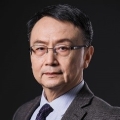
JIA Qingguo is professor and former Dean of the School of International Studies of Peking University. He is also Director of the Institute for Global Cooperation and Understanding and Director of Global Governance at Peking University. He received his Ph.D. from Cornell University in 1988. He has taught at the University of Vermont, Cornell University, University of California at San Diego, University of Sydney in Australia and Peking University. He was a research fellow at the Brookings Institution between 1985 and 1986, a visiting professor at the University of Vienna in 1997, a CNAPS fellow at the Brookings Institution between 2001 and 2002, and the Payne Distinguished Fellow for the 2022 fall quarter at the Stanford University. He is a member of the Standing Committee of the 14th National Committee of the Chinese People’s Political Consultative Conference (the CPPCC). He also served as a Standing Committee member of the 11th, 12th and 13th National Committee of the CPPCC and member of the 10th National Committee of the CPPCC. He is Vice President of the Chinese American Studies Association, Vice President of the China International Relations Studies Association, and Vice President of the Chinese Japanese Studies Association. He serves on the editorial board of more than a dozen established domestic and international academic journals on international issues. He has published extensively on U.S.-China relations, relations between the Chinese mainland and Taiwan, Chinese foreign policy and Chinese politics.

JIN Liqun is the inaugural President and Chair of the Board of Directors of the Asian Infrastructure Investment Bank (AIIB). On July 28, 2020, he was elected to serve a second term of five years, beginning on Jan. 16, 2021. Before being elected as the Bank’s first President, he served as Secretary-General of the Multilateral Interim Secretariat tasked with establishing the Bank. Jin has rich experience across the private and public sectors and with MDBs. He served as Chair of the China International Capital Corporation Limited (China’s first joint-venture investment bank), Chair of the Supervisory Board of the China Investment Corporation, and Chair of the International Forum of Sovereign Wealth Funds. He previously served as Vice President and then Ranking Vice President of the Asian Development Bank and as Alternate Executive Director for China at the World Bank and at the Global Environment Facility. Jin spent nearly two decades at the Chinese Ministry of Finance, reaching the rank of Vice Minister. He holds a master’s degree in English Literature from Beijing Institute of Foreign Languages (now Beijing Foreign Studies University) and was a Hubert Humphrey Fellow in the Economics Graduate Program at Boston University from 1987 to 1988. Jin is from the People’s Republic of China.
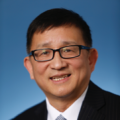
LI Cheng is professor of political science and founding director of the Centre on the Governance of China and the World at the University of Hong Kong, and a Scholar-in-Residence of Asia Society Hong Kong Center. Dr. Li’s research areas include the transformation of political leaders, the Chinese middle class, technological development in China, Sino-U.S. relations, and global governance. Li is the author and editor of 17 books, including more recently Middle Class Shanghai: Reshaping U.S.-China Engagement, The Power of Ideas: The Rising Influence of Thinkers and Think Tanks in China, and Chinese Politics in the Xi Jinping Era.
Prior to joining HKU, Li served as director and senior fellow at the Brookings Institution’s John L. Thornton China Center, where he remains a nonresident senior fellow. Dr. Li is also a director of the National Committee on U.S.-China Relations, a Distinguished Fellow of the Munk School of Global Affairs and Public Policy at University of Toronto, a nonresident fellow at Yale University’s Paul Tsai China Center, and a member of the Council on Foreign Relations. Li received an M.A. in Asian Studies from the University of California at Berkeley and a Ph.D. in Political Science from Princeton University.

Michael O’HANLON is a senior fellow in Foreign Policy at the Brookings Institution, where he specializes in U.S. defense strategy, the use of military force, and American national security policy. He is also director of research for the Foreign Policy program at Brookings. He is an adjunct professor at Columbia, Princeton, and Syracuse universities and University of Denver. He is also a member of the International Institute for Strategic Studies. O’Hanlon was a member of the external advisory board at the Central Intelligence Agency from 2011 to 2012.
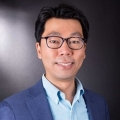
Heiwai TANG is Victor and William Fung Professor in Economics, Director of the Asia Global Institute and Associate Dean (External Relations) of the Business School at the University of Hong Kong (HKU). Prior to joining HKU, he was tenured Associate Professor of International Economics at the School of Advanced International Studies (SAIS) of Johns Hopkins University. He is also affiliated with the Center of Economic Studies and Ifo Institute (CESIfo, Germany), the Kiel Institute for the World Economy (Germany) and the Globalization and Economic Policy Center (U.K.) as a research fellow. He has been a consultant to the World Bank, the International Finance Corporation, the United Nations, and the Asian Development Bank; and held visiting positions at the IMF, Stanford, MIT, and Harvard. He is currently Managing Editor of Pacific Economic Review, and previously served as Associate Editor of the Journal of International Economics, the Journal of Comparative Economics and the China Economic Review.
Since 2021, he has served on a number of public and regulatory bodies in Hong Kong SAR, including as a member of the Currency Board Sub-Committee of the Hong Kong Monetary Authority’s Exchange Fund Advisory Committee, Industry Advisory Committee of the Insurance Authority, Securities and Futures Appeals Tribunal, and the Minimum Wage Commission, among others. Heiwai holds a Ph.D. in economics from MIT and a Bachelor of Science in mathematics from UCLA. His research interests span a wide range of theoretical and empirical topics in international trade, with a specific focus on production networks, global value chains, and China. His research has been published in leading journals in economics, including American Economic Review and Journal of International Economics. His research and opinions have been covered by BBC, Bloomberg, China Daily, CNA, CNN, Financial Times, New York Times, Al Jazeera, Foreign Policy, South China Morning Post, and various think tanks such as the Brookings Institution and the Peterson Institute for International Economics.

John L. THORNTON is Global Co-Chair of the Asia Society Board of Trustees and Executive Chairman of Barrick Gold Corporation. He is a Professor, Director of the Global Leadership Program, and a Member of the Advisory Board of the Tsinghua University School of Economics and Management and the Global Advisory Board of the Tsinghua School of Public Management in Beijing, and was Chairman of the Advisory Board of the Tsinghua University School of Economics and Management from 2010 to 2013. Mr. Thornton retired in 2003 as President and a member of the board of the Goldman Sachs Group. Mr. Thornton is a director of the Ford Motor Company and is also the Non-Executive Chairman of PineBridge Investments, a global asset manager, and a member of the board of Spark Cognition, a leading industrial artificial intelligence company. Mr. Thornton is also Chairman Emeritus of the Brookings Institution in Washington, D.C. He is a trustee, advisory board member, or member of the China Investment Corporation (CIC), Confucius Institute Headquarters (Hanban), Council on Foreign Relations, King Abdullah University of Science and Technology, McKinsey Advisory Council, Schwarzman Scholars, and the African Leadership Academy. He is Vice Chairman of the Morehouse College Board of Trustees. In 2007, Institutional Investor magazine named Mr. Thornton one of 40 individuals who have had the greatest influence in shaping global financial markets over the previous forty years. In 2008, he was awarded the Friendship Award of the People’s Republic of China, the highest honor accorded to a non-Chinese citizen. In addition, the Chinese government named him as one of fifteen “foreign experts” who have made the most significant contribution to China’s development over the past three decades.
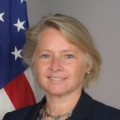
Susan A. THORNTON is a retired senior U.S. diplomat with almost three decades of experience with the U.S. State Department in Eurasia and East Asia. She is currently a Senior Fellow at the Yale Law School Paul Tsai China Center. She is also the director of the Forum on Asia-Pacific Security at the National Committee on American Foreign Policy and a nonresident senior fellow at the Brookings Institution.
Until July 2018, Thornton was Acting Assistant Secretary for East Asian and Pacific Affairs at the Department of State and led East Asia policymaking amid crises with North Korea, escalating trade tensions with China, and a fast-changing international environment. In previous State Department roles, she worked on U.S. policy toward China, Korea and the former Soviet Union and served in leadership positions at U.S. embassies in Central Asia, Russia, the Caucasus and China.
Thornton received her M.A. in International Relations from the Johns Hopkins University School of Advanced International Studies and her B.A. from Bowdoin College in Economics and Russian. She serves on several nonprofit boards and speaks Mandarin and Russian.
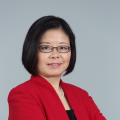
Tao WANG is the author of Making Sense of China’s Economy and currently head of Asia Economic Research at UBS Investment Bank. She is an invited fellow of the China Finance (CF) 40 Forum and a member of the China Global Economic Governance 50 Forum.
Dr. Wang’s research on China covers a wide range of topics including monetary policy, the debt problem, shadow banking, local government finance, US-China trade disputes, supply chain shifts, RMB internationalization, the property bubble, the demographic challenge, the urban-rural divide, and the long-term growth potential. Dr. Wang has been consistently ranked as one of the top China economists by institutional investors. She writes a column for Caixin, and her views have been widely quoted by international and Chinese media.
Prior to joining UBS, Dr. Wang worked as Head of Asian Economics at BP plc. Before joining the private sector, Dr. Wang worked at the International Monetary Fund (IMF) for over eight years, including on the China desk. She received her Ph.D. in Economics from New York University and her bachelor’s degree from Renmin University in Beijing.

Dennis WILDER is a senior fellow with the Initiative for U.S.-China Dialogue on Global Issues at Georgetown University, where he is also an assistant professor in Asian studies at the Walsh School of Foreign Service. Previously, Wilder spent three decades as a leading China expert within the U.S. intelligence and diplomatic communities. From 2015 to 2016, he served as the CIA’s Deputy Assistant Director for East Asia and the Pacific. Between 2009 and 2015, Wilder was senior editor of the President’s Daily Brief. Prior to this, Wilder served as the National Security Council’s (NSC) Director for China, Special Assistant to the President and Senior Director for East Asian Affairs on the NSC, as well as a China military analyst for the CIA. From 1992 to 1995, Wilder served as a political officer in the US Consulate General for Hong Kong and Macau. Wilder has a Master of Science in Foreign Service (MSFS) degree from Georgetown University and a Bachelor’s degree from Kalamazoo College, and from 1975-1976 studied Mandarin Chinese under the Yale-in-China program at New Asia College, Chinese University of Hong Kong.
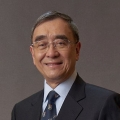
Professor Y.C. Richard WONG is Chair of Economics and Philip Wong Kennedy Wong Professor in Political Economy, and a member of the CCCW Steering Committee. He joined the University of Hong Kong in 1992, served as Director of the School of Business from 1997 to 2001, founding Dean of the Faculty of Business and Economics from 2001 to 2004, and Provost and Deputy Vice-Chancellor during 2004-2010; he is appointed interim Provost and Deputy Vice-Chancellor from April 2019. Professor Wong was educated at the University of Chicago. He taught at the Chinese University of Hong Kong from 1976 to 1992. His main research interest is in economic policy analysis and regional economic development. He is principal investigator of the University Grants Committee's Area of Excellence award for research in economic policy and business strategy. He had served on numerous professional and public bodies and was awarded the Silver Bauhinia Star in 1999 for his contributions in education, housing, industry and technology development and was appointed a Justice of the Peace in 2000 by the Government of the Hong Kong Special Administrative Region.
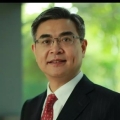
Professor XIAO Geng is President of the Hong Kong Institution for International Finance and Director of the Research Institute of Maritime Silk-Road at Peking University HSBC Business School.
Professor Xiao previously served as Vice President, China at the Fung Global Institute and Director of Columbia Global Centers East Asia, as well as Founding Director of the Brookings-Tsinghua Center for Public Policy and Senior Fellow at the Brookings Institution. Dr Xiao was also an Economics Professor at The University of Hong Kong, Head of Research at the Securities and Futures Commission of Hong Kong, Vice President of the Chinese Economists Society (US), Independent Director of the Genesis Emerging Markets Fund, Member of the Board of Supervisors at the Shenzhen Development Bank, Faculty Associate at Harvard University and a Consultant at the World Bank. Professor Xiao has done extensive empirical and policy research on the Chinese economy. He holds a BS in Management Sciences from the University of Science and Technology of China and an MA and PhD in economics from the University of California, Los Angeles.
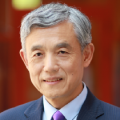
XUE Lan is Dean of Schwarzman College at Tsinghua University, where he also serves as Director of the Institute for AI International Governance, Director of the China Institute for Science and Technology Policy, and Co-Director of the Institute for Sustainable Development Goals. His teaching and research interests include global governance, crisis management, and science, technology, and innovation policy. Currently, he also serves as a Counsellor of the State Council and chair of China’s National Expert Committee on Next Generation AI governance and is a member of the Standing Committee of the Chinese Association of Science and Technology. He is an adjunct professor at Carnegie Mellon University and a non-resident senior fellow at the Brookings Institution. He is a board member of the UN Sustainable Development Solution Network, and a member of the UN Committee of Experts on Public Administration and the inaugural Internet Governance Forum Leadership Panel. Dr. Xue is a recipient of the Distinguished Young Scholar Award from the National Natural Science Foundation of China, the Cheung Kong Chair Distinguished Professor Award of the Ministry of Education, the Fudan Distinguished Contribution Award for Management Science, the Distinguished Contribution Award from the Chinese Association for Science of Science and S&T Policy, and the Second National Award for Excellence in Innovation in China. He holds a PhD in Engineering and Public Policy from Carnegie Mellon University.
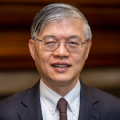
Dali L. YANG (Ph.D. 1993, Princeton) is the William C. Reavis Professor of Political Science at the University of Chicago. Yang's research primarily focuses on China's development, governance, public health, and global influence. He has authored several notable books, including Calamity and Reform in China, Remaking the Chinese Leviathan, and Wuhan. Yang has held various leadership positions at the University of Chicago. He was the founding Faculty Director of the Center in Beijing, the chair of the Department of Political Science, and is Senior Advisor to the President and the Provost on Global Initiatives.
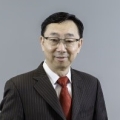
Tao ZHANG has been Chief Representative of the Bank for International Settlements (BIS) Office of Asia and the Pacific since September 2022. As a member of the BIS senior management, he takes lead in its activities in Asia and the Pacific. Mr. Zhang has extensive experiences both in international arena and at the national level in China. He served as Deputy Managing Director of the International Monetary Fund (IMF) in Washington, DC during 2016-2021. Mr. Zhang also held senior positions in China, including Deputy Governor of the People’s Bank of China, and Chairman of the Supervisory Board at the People’s Insurance Company (Group) of China Limited. Earlier in his career, he had worked as an economist at the World Bank and the Asian Development Bank. Mr. Zhang has a Ph.D. in International Economics from the University of California, Santa Cruz, USA, and a bachelor’s degree from Tsinghua University, China.
Menu:
White Asparagus & Burrata Cheese (v)
Radish, Snow Pea Puree, Parmesan Cracker, Truffle Oil
*****
Pan-Seared Sea Bream Fillet
Crab Meat & Mushroom Dashi, Potato Mashed
or
Braised Miso Portobello Mushroom (v)
Grilled Baby Gem, Buckwheat Rice, Tofu Dressing
*****
Yuzu Sorbet & Jelly
Served with Aloe Vera & Mango Pearl
Coffee / Tea
Co-Organized and Co-Sponsored by:
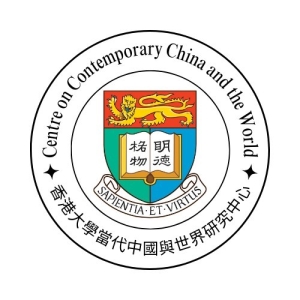
Sign up link:

The views and opinions expressed are those of the speakers and participants and, unless expressly stated to the contrary, do not reflect the opinion, position or official policy of Asia Society Hong Kong, its members, or its committees. Asia Society Hong Kong does not endorse or approve and assumes no responsibility for the content of the information presented.
Event Details
Hong Kong Jockey Club Hall, Asia Society Hong Kong Center, 9 Justice Drive, Admiralty.